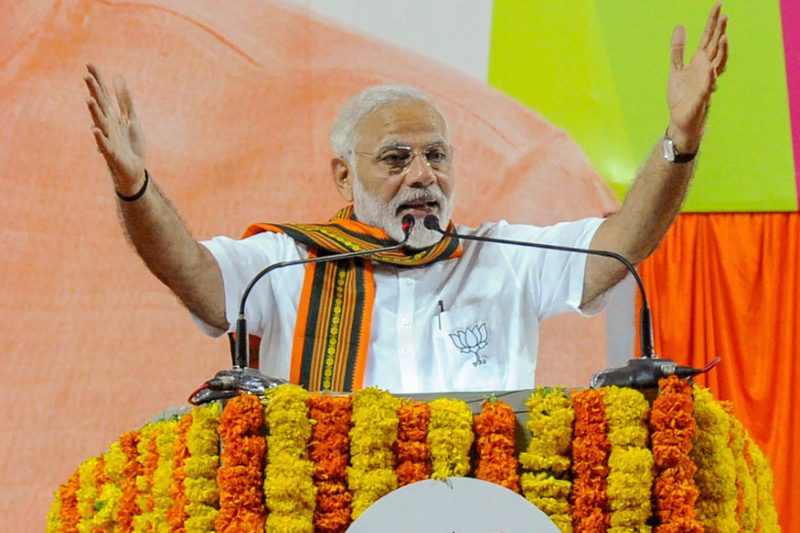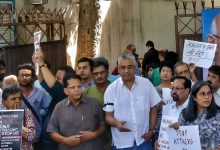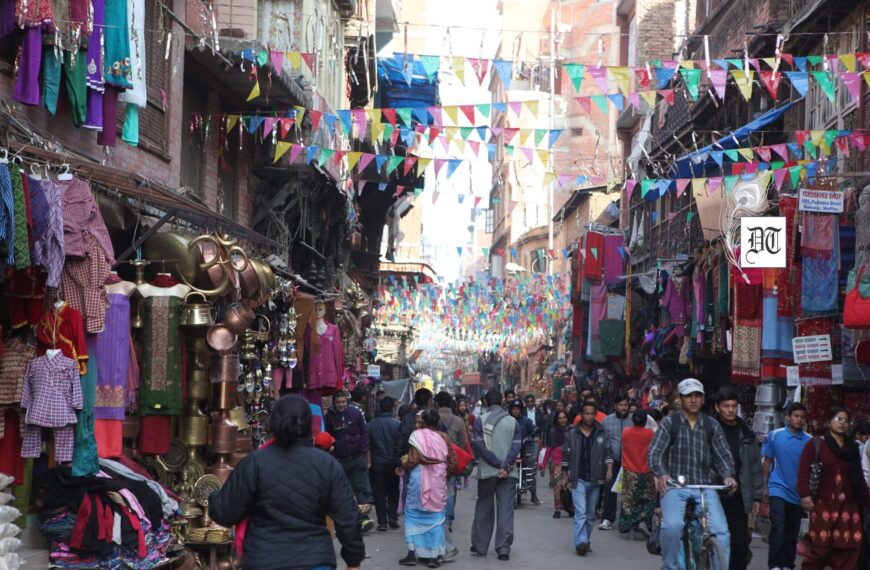After firing the opening salvo against TMC by exposing its poor governance, BJP also upped the ante on the political front as well. It launched its political campaign as Prime Minister Narendra Modi tore into TMC’s record of corruption and inefficiency in a hard-hitting speech at Midnapore, on July 15. A report, for Different Truths.
At long last, the gloves have finally come off in the highly intriguing political face-off between Bharatiya Janata Party (BJP) and Trinamool Congress (TMC) in West Bengal. Three statements and two recent visits by Union ministers to Kolkata, slamming the Bengal government for its less than stellar administrative record, provided evidence that the central BJP leaders felt they have had enough of TMC’s tantrums. With the 2019 Lok Sabha elections approaching, TMC can no longer count on Mamata Banerjee’s self-proclaimed ‘personal equation’ with Rajnath Singh, Sushma Swaraj or Arun Jaitley to stop BJP hardliners from gunning for her.
After firing the opening salvo against TMC by exposing its poor governance, BJP also upped the ante on the political front as well. It launched its political campaign as Prime Minister Narendra Modi tore into TMC’s record of corruption and inefficiency in a hard-hitting speech at Midnapore, on July 15.
The same day the Supreme Court blasted the Central Bureau of Investigation (CBI) for its apparently aimless — and endless — probe into the Sarada chit fund and Narada bribe scams, where the involvement of many TMC MPs, ministers and leaders had been exposed. At party headquarters in Kolkata, senior TMC leaders in a gloating mood pointed out that in directing the CBI to approach the Kolkata High Court first, the SC had all but shown the door to the once feared agency.
Observers pointed out that these leaders kept deliberately silent on the significance of certain other observations made by the apex court. The SC berated the CBI for dragging its feet, as state and central investigating agencies fought each other in an eternally long blame game. Then came the clincher, which sent a chill into the most intrepid TMC hearts by now, as the judges said the matter should have reached the trial stage. And yet, politicians arrested earlier were now out free on bail!
Further, a significant comment made by Union Railway Minister Piyush Goyal indicated how hard Delhi could squeeze Kolkata if it really wanted to. Outlining the Railway’s stand on ongoing infra projects in Bengal, Goyal said that money would be made available only when the state authorities acquired at least 75 percent of the land needed for projects. He targeted two Metro projects, from the North to Kolkata airport and the Joka- BBD Bag route, where there had been major cost over-runs because of long delays over land acquisition.
The reason for such delay: illegal politically-backed encroachment by squatters who were always compensated by the state government before they consented to move out, after long persuasive sessions with local TMC leaders (syndicates?). Investors and entrepreneurs privately admit that this is the strongest reason they fear to put their money in Bengal projects. Even the common people know this in Bengal. ‘Not a single major industry – not one! – has come to Bengal since TMC took over the state in 2011,’ admits a Merchants’ Chamber of Commerce spokesman.
Goyal’s apparently casual suggestion to Metro authorities on the Joka-BBD bag project caught the attention of senior Railway and state officials during a recent meeting.
Referring to the inevitable delays, the difficulties and cost escalation in Bengal infra schemes, Goyal asked officials to consider whether the Joka-BBD bag metro project should be scrapped! Said one official, “A stronger, more negative warning could not be given by a central minister on an ongoing project. It suggested that the Railway ministry would not lose a moment to ditch the project if only the concerned officials just said that things were not going well! Clearly the minister was reminding the state’s political leadership of its own vulnerability vis-à-vis the Centre.”
The matter assumed importance in that any mishandling of rail projects on Bengal’s part could hurt TMC mortally. Chief Minister Mamata Banerjee had announced to state officials that by way of priority the state government would spend around Rs 15,000 crore in the new infra projects, the bulk of them in the rail sector. Official agencies would work round the clock in a frenzy to complete all stalled projects, to ensure job creation process and accelerate development in the months ahead.
Besides the money to be provided by the Railways, the state finance department arranged to take over all unspent funds lying with different departments, to avoid financial glitches that could hamper work.
Opposition parties had seen in this move TMC’s last desperate bid to quicken the pace of economic development, a major area of concern in Bengal, prior to the 2019 Lok Sabha polls.
Goyal’s tough ‘no land acquisition no money’ approach, however, would effectively torpedo TMC’s attempted projection of itself as a dynamic, forward looking pro-development party. The state government has not been able to make much headway in any of its proposed major development projects at Kowakhali township in North Bengal, the expansion of the Bagdogra airport, railway project at Bhabadighi, power supply project at Deganga, and two other projects in Burdwan and Katwa, because of stubborn resistance from landholding peasants and local people.
‘Post Singur agitation in 2007, where the TMC drove out the Tatas sabotaging their small car project, backing only about 9 percent of landholders who refused to budge, all landowners in Bengal now ask for astronomically high compensation before they will relocate. This puts up the cost of initial investments to prohibitively high levels, scaring away investors. Worse, the local TMC leaders engaged in negotiations take a cut from the compensation. “It is public knowledge,” says Ranjit Das, a worker at Durgapur steel plant.
Das admits as a member of the Left-affiliated TU body CITU that parties opposing TMC also egg on the landholders not to cooperate with the government, as at Deganga and at Bhabadighi, giving TMC a bit of its own Singur medicine back with interest. The ruling party is truly hoist on its own petard and knows it. So does the BJP.
Net outcome: a deadly combination of massive joblessness, economic stagnation, brain drain, rural poverty and backwardness in many parts of Bengal — creating ‘the devil’s own brew,’ in the state, as an observer put it.
In comparison with Goyal’s bludgeoning attack, Maneka Gandhi’s censure of state police for its failure to nab any culprit over the rape of a minor at a Behala school or Harsimrat Kaur Badal”s lament that Bengal had not sent a single proposal to set up a food processing industry to Delhi, were mere pinpricks.
But the message from Delhi is clear: no more soft treatment for TMC-ruled Bengal. These developments follow the recent visit to the state by BJP President Amit Shah whom his Bengal party followers had urged strongly to declare war against TMC once and for all.
Ashis Biswas
©IPA Service
Photo from the Internet





 By
By

